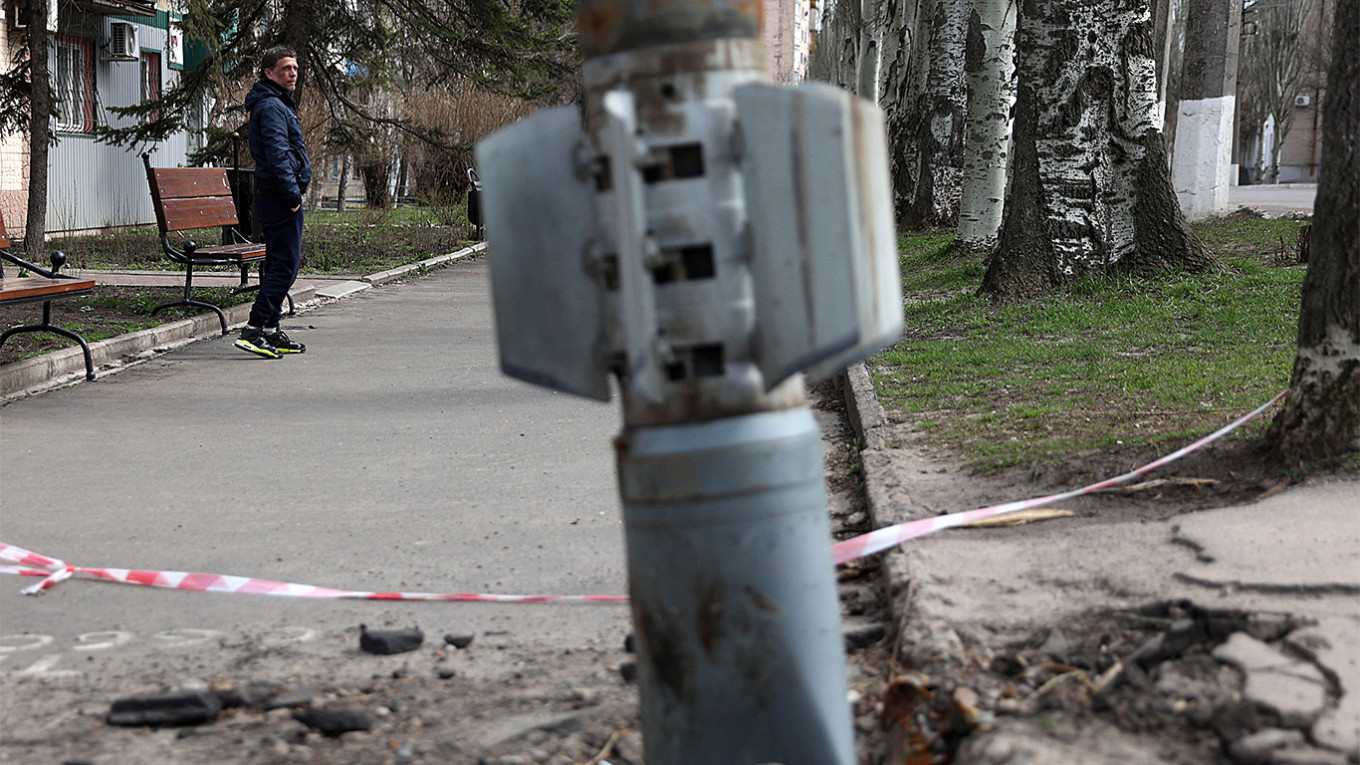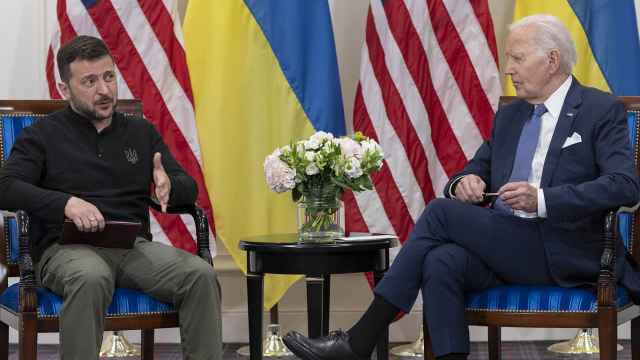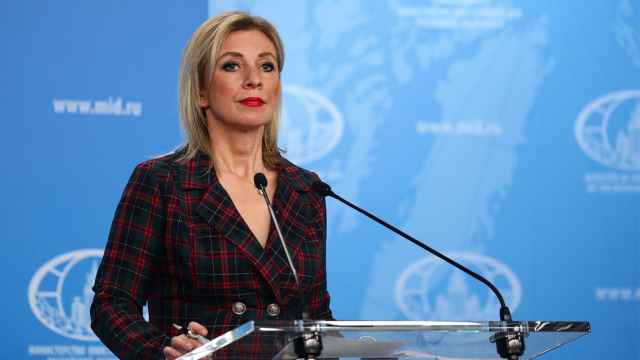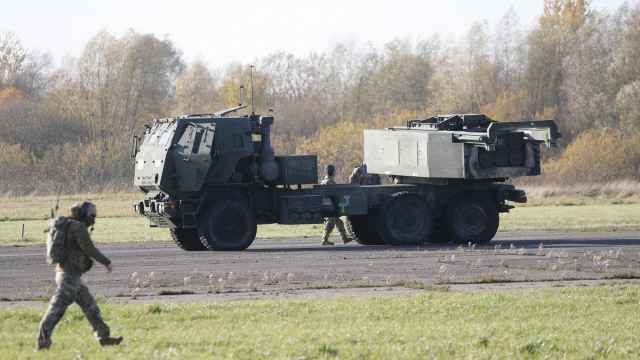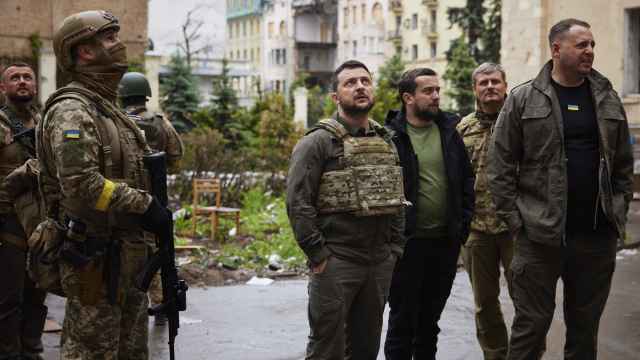The Ukraine war took a troubling turn in July when the United States decided to arm Kyiv with cluster bombs. After months of deliberation, Washington said thousands of munitions would be sent to help Ukraine drive out Russian forces. Politicians and rights groups immediately blasted the move as a “terrible mistake” that flew in the face of international law.
Washington’s decision sets a worrying precedent. In August, Lithuanian Defense Minister Arvydas Anušauskas proposed withdrawing his country from the Convention on Cluster Munitions, echoing several other countries that have criticized the treaty that bans these cruel weapons.
This should not be happening. Instead of normalizing cluster bombs, everything should be done to end their use.
Both Russian and Ukrainian forces have been documented deploying the munitions, killing many non-combatants and causing serious harm. Moscow’s usage is far more extensive than Kyiv’s. It’s obvious that President Vladimir Putin does not distinguish between military targets and civilians in Ukraine. Killing civilians is deliberate. The relentless bombing of Ukrainian cities is a testament to this fact.
Things could get worse, however.
White House national security spokesman John Kirkby says Kyiv has already unleashed its new U.S.-supplied weapons. Ukraine could see more furious cluster bombing, with Putin warning Moscow has a “sufficient stockpile” to retaliate. It could also prompt the deployment of other banned weapons such as chemical attacks, escalating an already horrific conflict.
The Kremlin has a long history of showing that when it comes to war, it will not show restraint. Morals are irrelevant where Russia’s interests are concerned, as shown by how Moscow continued to back the Syrian regime despite it brutalizing its own people with chemical weapons.
Ukraine has provided written assurances it will deploy the weapons in a way that minimizes danger to innocent lives. But this is impossible. By their very nature, cluster bombs are indiscriminate. Like a shotgun, they splatter explosive submunitions over an area as big as several soccer fields. Civilians will almost inevitably be killed. Research shows when they are fired at towns or cities, nine out of 10 victims are non-combatants.
Worse still, bomblets that fail to explode lie dormant like landmines. That is, until they come into contact with people. Children are at particular risk, as they can confuse the explosive bomblets for toys.. Up to 40% of bomblets don’t immediately detonate, meaning huge numbers of highly unstable bomblets can infest an area, killing, crippling and disfiguring for years to come. The cluster bombs the U.S. will supply to Kyiv are more than two decades old, making their reliability even more questionable. All these victims will almost exclusively be Ukrainian civilians, simply because the war is waged on their soil.
History reveals the risks a revival of cluster bombs poses. Their prolific use has left a dark and tragic legacy in Laos, Cambodia, Vietnam, Afghanistan, Syria and Iraq.
In Laos, one of the worst affected countries, the U.S. dropped a jaw-dropping 260 million cluster bombs between 1964 and 1973. Approximately one-third of them failed to explode and remained dormant. Fewer than 400,000 – just 0.47% – have been cleared so far and at least 11,000 people have been killed. Half of these victims were children.
Death or injury are not the only risks. The psychological devastation is huge. The specter of unexploded ordnance terrorizes surviving populations, forcing them to move away from contaminated areas. In Afghanistan and Iraq, U.S. munitions dispersed bomblets of the same size and fluorescent yellow color as the humanitarian rations it air-dropped for civilians — another source of terror.
When Ukrainian refugees eventually return home, unexploded bomblets will only make the challenge of rebuilding their country more immense. Expensive, time-consuming and dangerous clean-up operations will be needed. Agricultural land and water sources riddled with cluster bomb remnants will strangle local economies and livelihoods. In Ukraine – Europe’s breadbasket – farming will be hazardous for decades.
Arms manufacturers claim technical improvements can address these environmental and humanitarian concerns. Self-destruct features, where submunitions destroy themselves if they fail to explode, repeatedly fail in the field.
Despite claims from naysayers like Anušauskas, who paradoxically claims it makes his country more vulnerable to the weapon, the Convention on Cluster Munitions has been immensely successful. Since it was adopted in 2008, 99% of global stockpiles have been destroyed and more countries — many former munitions producers — have joined. No new use, production or transfer of cluster bombs has been recorded among the 123 states who are signatories.
But their deployment in Ukraine is testing the treaty as never before. While the U.S., Russia and Ukraine never signed up — insisting these weapons were necessary — others may leave the agreement or decide it's not worth joining.
Some 75 countries are estimated to have cluster bomb stockpiles. But if their use was legitimized by an exodus from the agreement, this number could grow, amounting to millions of munitions and billions of individual submunitions. If even a tiny fraction of these stocks are deployed or sold to other countries or non-state armed groups, the consequences could be severe.
Normalizing violations of international agreements is also deeply problematic. Treaties take years to develop and when one state openly disregards them it can create a damaging spillover effect, encouraging non-compliance with other treaties and jeopardizing global stability. Laws should never be seen as optional.
The irony isn't lost on some that Washington has rightly called Putin’s invasion of Ukraine illegal, but itself has violated an international law observed by a majority of UN member states in giving Kyiv cluster bombs.
Even when an adversary breaks international law, this does not give a state the legal right to respond in kind. Taking an eye for an eye is not allowed. Plus, Moscow's spin-machine could seize upon Ukraine’s cluster bomb use to frame Kyiv as a criminal regime that needs to be destroyed.
Moreover, using these vile weapons may ultimately backfire for Ukraine on the international stage. Concerned about the sluggish pace of Ukraine’s counteroffensive, hawkish voices invoke their fearsome effectiveness on the battlefield, with Kyiv able to destroy more targets with fewer rounds — overcoming its disadvantage in manpower and artillery.
But this argument is shortsighted: wars aren't fought on the battlefield alone, but also in peoples’ minds. Kyiv frames its fight against Russia as a just struggle between freedom, democracy and the rule of law against autocratic depravity. Yet with each maimed child or dead civilian, its reputation is tarnished.
Though Ukraine may justifiably want to give Moscow a taste of its own malicious medicine or feel that war requires whatever it takes, Kyiv must maintain the moral high ground. This is key to its popular support in the West securing future deliveries of vital weapons. Resorting to the same abhorrent tactics as Moscow could put that at risk.
A Message from The Moscow Times:
Dear readers,
We are facing unprecedented challenges. Russia's Prosecutor General's Office has designated The Moscow Times as an "undesirable" organization, criminalizing our work and putting our staff at risk of prosecution. This follows our earlier unjust labeling as a "foreign agent."
These actions are direct attempts to silence independent journalism in Russia. The authorities claim our work "discredits the decisions of the Russian leadership." We see things differently: we strive to provide accurate, unbiased reporting on Russia.
We, the journalists of The Moscow Times, refuse to be silenced. But to continue our work, we need your help.
Your support, no matter how small, makes a world of difference. If you can, please support us monthly starting from just $2. It's quick to set up, and every contribution makes a significant impact.
By supporting The Moscow Times, you're defending open, independent journalism in the face of repression. Thank you for standing with us.
Remind me later.


